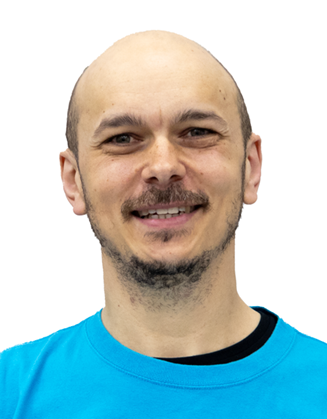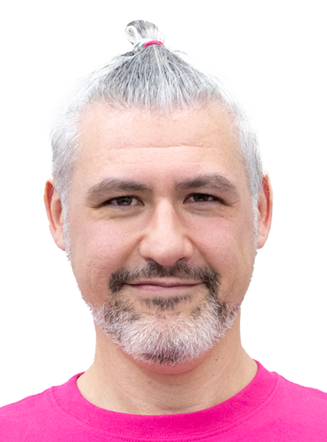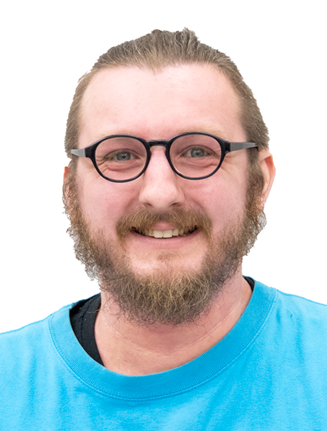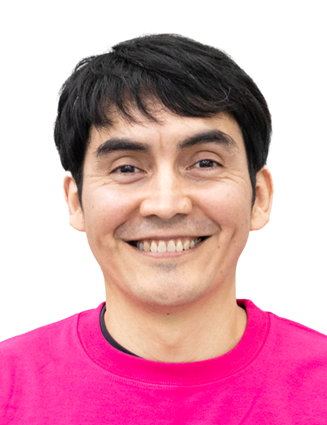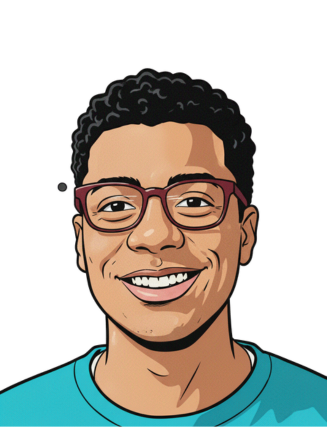Soren

- Country
- United States
- University
- University of Pensylvania
- Time in Japan
- Since 2013
- Time Teaching
- Since 2013
![]()
I like to cook when I have time, and sometimes try baking a little as well. I wish houses in Japan had big ovens!
時間があるときは料理をするのが好きです。パンを焼いたりもしますよ。家に大きなオーブンがあったらいいなと思っています。
I lived with a host family when I did my study abroad in Nagoya in 2008, and I’m still close with them and see them at least once a year. I think of them as my “Japanese family”.
2008年に名古屋に留学していた頃、ホストファミリーと暮らしていました。今もそのホストファミリーとはとても仲良くしていて、最低でも1年に1回は会っています。その家族は私にとって、「日本にいる本当の家族」のように思っています。
- What do you think is special about GnoKids compared to other kids English schools?
グノキッズが他の学校に比べて、特別だと思うところはどのようなところですか?
- I think that there are three keys to GnoKids’ success in helping young kids learn natural English quickly.
The first is the fact that there are two native speaking teachers in the classroom communicating not only with the students, but with each other. This gives the kids a rare opportunity to be exposed to natural conversational English on a regular basis.
The second is the video homework. Studying in a classroom once a week simply isn’t enough to really learn a foreign language. The video homework reinforces the learning that we do in class and also prepares kids for the next class. This way, their limited time with the teachers can be used to most effectively to help them improve their English. We also make the videos funny, interesting and relatable for each age group so that kids will have fun practicing at home and develop a positive attitude toward English learning.
The third is that the curriculum and materials are all being thought up and designed by the teachers who actually teach the lessons in the classroom. At many companies, the people making the curriculum have never actually taught in a classroom and don’t really understand how kids learn best. At GnoKids, we apply our experience and expertise throughout the whole process, both in the classroom and out of it, to tailor the learning experience to our students.グノキッズでお子さまが自然な英語を素早く学べている成功のキーは3つあると思います。1つは2人のネイティブスピーカーがクラス内にいて、コミュニケーションを生徒とだけでなく先生同士でもとっていることです。このことはお子さまにとって定期的に自然な英会話が聞けるとても珍しい機会だと思います。2つめはYouTube動画の宿題です。実際、週に1回クラスで勉強するだけでは外国語の勉強には十分ではありません。YouTube動画の宿題は、授業中に行う内容を強化でき、次のクラスの予習もできます。このように自宅で予習復習ができるということは、英語力を向上させるためにクラス内での講師との限られた時間を最大限有効に使うことができます。私たちは、また、お子さまが家庭で楽しく練習し、英語学習に積極的な姿勢を築けるように、各年齢別にその動画を面白く、親しみやすくしています。
3つ目は、実際にクラス内でレッスンを教える講師がカリキュラムと教材を考え、組み立てていることです。多くの企業でカリキュラムを作っている人は、教室で実際に教えた経験がなく、実際のお子さまの学習方法を理解していません。 グノキッズでは、私たちの経験や専門知識と、実際にお子さまを教えた経験を合わせて、その知識をクラスルーム内外問わず、全ての過程に取り入れています。 - What is most important for you when teaching kids?
Soren先生にとって、お子さまを教えるときに最も重要なことはどのようなことですか?
- I think that the most important thing is that my students are developing the confidence that they can use English to actually communicate. Of course they won’t be having full conversations in English right away, but when they are able to communicate their own ideas (even if it’s just something as simple as the color of crayon they want to use or that they’d like a turn throwing the ball), and are understood and responded to positively, it means so much more than if they just repeat a word or phrase they’ve been told. Students who feel like they have agency will strive to apply the language they’re learning as their ability increases.
最も重要なことは、お子さまが実際にコミュニケーションをとるために「英語を使うことができる」という自信を育むことだと思っています。もちろん、すぐに英語で完全な会話をできるわけではありませんが、自分のアイデアを伝えることができて、(たとえそれが自分の使いたいクレヨンの色を伝えることや、ボールを投げる順番が早く自分に回ってきてほしい。というような単純なものであっても)その彼らの言葉が理解され、積極的に反応されるということは、覚えた単語やフレーズの単純な繰り返しをするよりもはるかに多くのことを意味します。 「ぼくには、わたしには、英語を話して外国人に意志を伝えられる力があるんだ!」という自信を自分で感じられるお子さまは、その能力が増すにつれて、学んでいる言語をもっと使おうと努力するからです。
- What do you think has helped your students improve the most?
Soren先生にとって、どのようなことが一番お子さまの成長の助けになっていると思いますか?
- The most important factor in helping students improve is creating an environment where it’s okay to make mistakes as long as you try. It’s natural for students of any age to be self-conscious or embarrassed at first if they aren’t confident, but you can’t learn a foreign language if you’re too scared to try to use what you’ve learned. One of the great things about language is that it doesn’t have to be perfect to be successful. You can say something incorrectly but still get your meaning across, and once students understand that, they really start to improve rapidly. Creating this kind of environment means not only praising and rewarding students for their efforts, but giving them opportunities and encouragement to support each other to try even when they’re not sure if they know the right answer.
お子さまの成長に役立つ最も重要な要素は、トライして、ミスをしても大丈夫な環境を作り出してあげることです。 どの年齢のお子さまにとっても、自信が持てない初心者の時期に照れたり、恥ずかしがったりすることはごく自然なことです。しかし、学んだ言葉やフレーズを使うのが怖すぎると感じてしまうと外国語を学ぶことはできません。 言語に関する素晴らしいことの1つは、「成功するためには完璧である必要はない」ということです。 たとえ間違ったことを言ったとしても、お子さまは一度正しい意味を理解するとすぐにそこから、ものすごいスピードで成長し始めます。 このような環境下では、お子さまの努力を褒めたり、出来たことに対して何かの賞をあげたりするだけでなく、正しい答えを知っているかどうかわからなくてもお子さま同士がお互いをサポートする機会や、それを励ます機会を与えてあげることができるのです。
- Why did you become a teacher?
なぜ先生になったのですか?
- Although I studied Japanese in college, after I graduated I couldn’t find any work that would let me use my Japanese, so I ended up trying lots of different things. I worked in the food service industry, health insurance, and then computer networking. None of these jobs really interested me that much, and I didn’t feel like I was doing important and meaningful work. I decided to come back to Japan for a change of pace, and teaching English was the easiest way to do that. After teaching kids for just a short while, I felt like I was finally doing something that interested and challenged me, and affecting people’s lives in a direct and positive way. And working with kids every day is also just a lot of fun!
大学で日本語の勉強をしましたが、卒業後、日本語を使うことのできる仕事を見つけることができませんでした。私は食品サービス業界、医療保険会社、そしてコンピュータネットワーキングの会社などで働いていました。しかし、これらの仕事にはそれほど関心がなく、重要で有意義な仕事をしているという気がしませんでした。 そこで、今までの仕事のペースを変えるために日本に戻ってくることにしました。英語を教える仕事をすることは、このペースを変える最も簡単な方法だったのです。 ほんの少しお子さまに英語を教えただけで、仕事に関心を持て、挑戦でき、直接的かつ積極的にだれかの生活に影響を与えるような仕事にやっと出会えたと感じました。 子供たちと毎日一緒に働くことも楽しいです!
- How did you get interested in Japan?
どのように日本に興味をもったのですか?
- It started with my parents when I was very young. My dad was a Zen Buddhist and studied Japanese tea ceremony (茶道), so my home growing up had a tea room in it, with tatami mats and shouji screens. My mom is a massage therapist, but incorporates reiki (霊気), which is a Japanese “healing energy” practice into her massage. I began to express my own interest in Japan in junior high school when I studied shinkendo, a Japanese sword martial art, and started watching anime. I continued on to major in Japanese language and culture in college, and spent my last semester studying abroad in Nagoya.
幼少期から両親と一緒に興味を持ち始めました。 私のお父さんは禅宗で茶道を勉強していたので、育った家には畳と障子がある茶室がありました。 私のお母さんはマッサージセラピストですが、彼女のマッサージには日本の “癒しのエネルギー”である霊気(reiki:霊気)を取り入れています。 私は日本の刀剣武道である真剣道を勉強し、アニメを見始めてから、中学校で本格的に日本に興味を持ち始めました。 私は大学で日本語と日本文化を専攻していました。最後の学期は留学生として名古屋で勉強しました。
- How do you like to spend your free time?
自由な時間をどのように使うのが好きですか?
- I try to play tennis as often as possible. It’s great when I can find an evenly matched opponent to practice with, but I’ve been teaching my wife to play recently as well and that’s also fun! I keep up with my friends back the US by chatting on Skype and playing computer games together. I like strategic games that make you think.
私はできるだけ頻繁にテニスをしようと心がけています。 練習するのにぴったりの対戦相手を見つけることができたら嬉しいです。最近私は妻にもテニスを教えていて、これもとても楽しいです! また、私はスカイプでチャットし、一緒にテレビゲームをすることで、私の友人たちをまるでアメリカに連れて行くような感覚にさせます。 戦略的なゲームが好きです。
- What are your favorite foods?
お気に入りの食べ物はなんですか?
- That’s a tough one because I like so many different kinds of food, but probably my overall favorite food is pizza. It comes in so many different styles and flavors that it fits nearly any mood. When it comes to cooking, my favorite things to make are pasta, hamburgers and enchiladas. And my favorite Japanese food is unagi.
私は非常に多くの食べ物が好きなので難しい質問ですが、おそらくその中でも一番好きな食べ物はピザです。 それはどんな気分にも合ういろいろな種類のスタイルと味があるからです。 料理については、パスタ、ハンバーガー、エンチラダが好きです。 そして私の好きな日本食はうなぎです。




